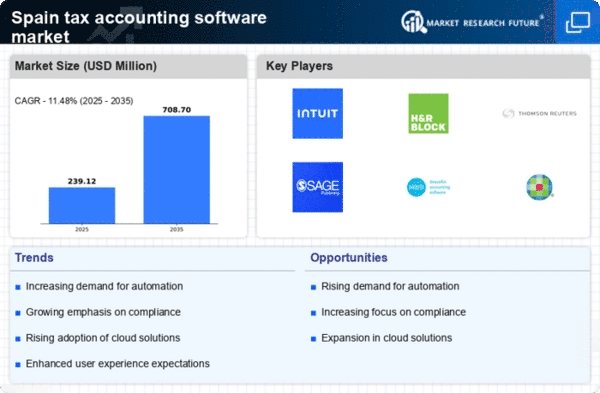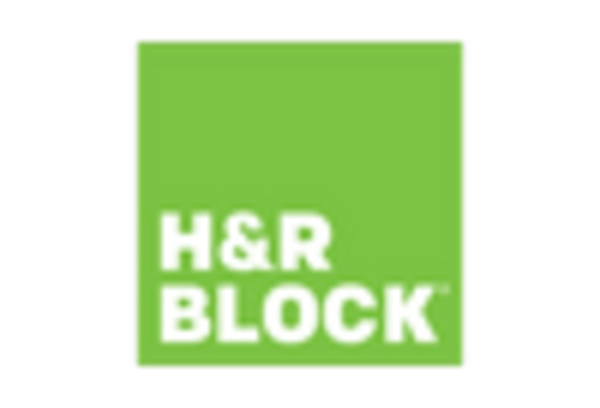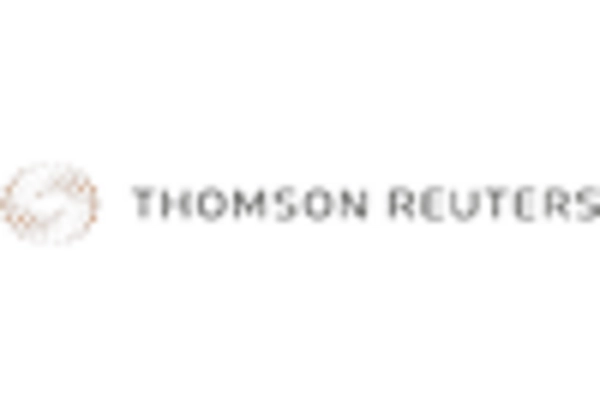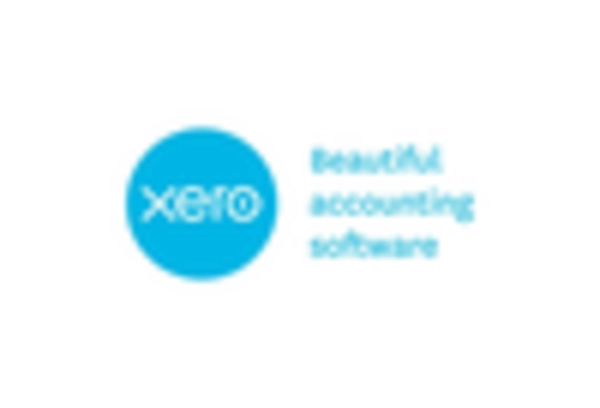Increased Focus on Data Security
In the context of the tax accounting-software market, data security has emerged as a paramount concern for businesses in Spain. With the rise in cyber threats and data breaches, companies are prioritizing software solutions that offer robust security features. Recent statistics indicate that nearly 45% of businesses have reported concerns regarding data protection in their financial operations. This heightened awareness is prompting firms to invest in tax accounting software that complies with stringent security standards. As a result, software providers are increasingly incorporating advanced encryption and multi-factor authentication into their offerings. The tax accounting-software market is thus likely to see a shift towards solutions that not only streamline tax processes but also ensure the safeguarding of sensitive financial information.
Rising Demand for Digital Solutions
The tax accounting-software market in Spain is experiencing a notable surge in demand for digital solutions. As businesses increasingly recognize the efficiency and accuracy that software can provide, the market is projected to grow significantly. According to recent data, the adoption of digital tax solutions has risen by approximately 30% over the past year. This trend is driven by the need for streamlined processes and reduced manual errors, which are critical in the tax accounting sector. Furthermore, the integration of advanced technologies such as artificial intelligence and machine learning into tax software is enhancing functionality, making it more appealing to businesses. The tax accounting-software market is thus positioned to benefit from this growing inclination towards digital transformation, as companies seek to modernize their financial operations.
Shift Towards Remote Work Solutions
The tax accounting-software market is witnessing a shift towards remote work solutions, driven by the evolving work environment in Spain. As more businesses adopt flexible work arrangements, there is a growing need for software that supports remote access and collaboration. Recent surveys indicate that over 50% of companies are seeking tax accounting solutions that enable their teams to work effectively from various locations. This trend is prompting software developers to enhance their offerings with cloud-based functionalities that allow for seamless access to financial data. The tax accounting-software market is thus likely to see an increase in demand for solutions that cater to the needs of remote teams, ensuring that tax processes remain efficient regardless of physical location.
Emphasis on User-Friendly Interfaces
User experience is becoming a critical factor in the tax accounting-software market in Spain. As businesses seek to optimize their financial operations, the demand for software with intuitive and user-friendly interfaces is on the rise. Recent findings suggest that approximately 70% of users prefer tax software that simplifies navigation and enhances usability. This trend is influencing software developers to prioritize design and functionality, ensuring that their products are accessible to a broader range of users. The tax accounting-software market is thus evolving to meet these expectations, with an emphasis on creating solutions that not only meet technical requirements but also provide a seamless user experience.
Growing Need for Real-Time Reporting
The demand for real-time reporting capabilities is reshaping the tax accounting-software market in Spain. Businesses are increasingly required to provide timely and accurate financial information to comply with regulatory standards. This need is reflected in the market, where software solutions that offer real-time data analytics are gaining traction. Approximately 60% of companies have expressed a preference for tax software that enables instant reporting and insights. This trend is driven by the desire for enhanced decision-making and improved financial visibility. Consequently, the tax accounting-software market is adapting to these requirements by developing solutions that facilitate real-time data processing and reporting, thereby enhancing overall operational efficiency.
















